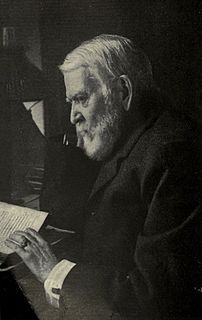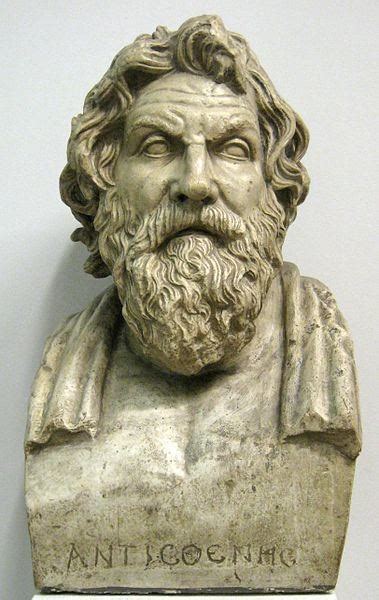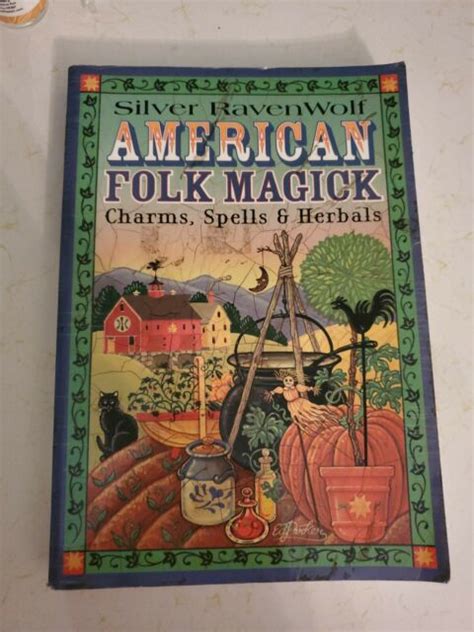A Quote by Lord Byron
Pythagoras, Locke, Socrates - but pages might be filled up, as vainly as before, with the sad usage of all sorts of sages, who in his life-time, each was deemed a bore! The loftiest minds outrun their tardy ages.
Related Quotes
The more I think of a people calmly developing, in regions excluded from our sight and deemed uninhabitable by our sages, powers surpassing our most disciplined modes of force, and virtues to which our life, social and political, becomes antagonistic in proportion as our civilisation advances - the more devoutly I pray that ages may yet elapse before there emerge into sunlight our inevitable destroyers.
We know next to nothing with any certainty about Pythagoras, except that he was not really called Pythagoras. The name by which he is known to us was probably a nickname bestowed by his followers. According to one source, it meant ‘He who spoke truth like an oracle’. Rather than entrust his mathematical and philosophical ideas to paper, Pythagoras is said to have expounded them before large crowds. The world’s most famous mathematician was also its first rhetorician.
... It's perfect! Locke would appreciate it." "Bug," Calo said, "Locke is our brother and our love for him knows no bounds. But the four most fatal words in the Therin language are 'Locke would appreciate it.'" "Rivalled only by 'Locke taught me a new trick,'" added Galo. "The only person who gets away with Locke Lamora games ..." "... is Locke ..." "... because we think the gods are saving him up for a really big death. Something with knives and hot irons ..." "... and fifty thousand cheering spectators.
I don't think I would have been a good architect. Really, I have thought about this from time to time, and I might have wound up like my father, who never did find that which he could devote his life to. He sort of drifted from job to job. He was a traveling salesman, he was a bookkeeper, he was an office manager, he was here, there, there. And however enthusiastic he was at the beginning, his job would bore him. If I hadn't had the writing, I think I might have replicated what he was doing, which would not have been good.
He had never felt anything like that before - yet somehow he knew that from now on he would always feel like that, always, and something caught at his throat as he realized what a strange sad adventure life might get to be, strange and sad and still much more beautiful and amazing than he could ever have imagined because it was so really, strangely sad.
Aristotle ... imputed this symphony of the heavens ... this music of the spheres to Pythagorus. ... But Pythagoras alone of mortals is said to have heard this harmony ... If our hearts were as pure, as chaste, as snowy as Pythagoras' was, our ears would resound and be filled with that supremely lovely music of the wheeling stars.
It is a time when one’s spirit is subdued and sad, one knows not why; when the past seems a storm-swept desolation, life a vanity and a burden, and the future but a way to death. It is a time when one is filled with vague longings; when one dreams of flight to peaceful islands in the remote solitudes of the sea, or folds his hands and says, What is the use of struggling, and toiling and worrying any more? let us give it all up.
A great dread fell on him, as if he was awaiting the pronouncement of some doom that he had long foreseen and vainly hoped might after all never be spoken. An overwhelming longing to rest and remain at peace by Bilbo's side in Rivendell filled all his heart. At last with an effort he spoke, and wondered to hear his own words, as if some other will was using his small voice. "I will take the Ring," he said, "though I do not know the way.
When a friend is carried to his grave, we at once find excuses for every weakness, and palliation of every fault. We recollect a thousand endearments, which before glided off our minds without impression, a thousand favors unrepaid, a thousand duties unperformed; and wish, vainly wish, for his return, not so much that we may receive as that we may bestow happiness, and recompense that kindness which before we never understood.
Just as an earthly garden needs constant attention, so, too, does our spiritual garden. When we first begin our journey of spirituality our garden is filled with all sorts of interesting items--it was not, after all, a fallow place before we sought to investigate what might be there and what we could possibly put in it. Everyone's spiritual garden is different, because each individual is unique.






































